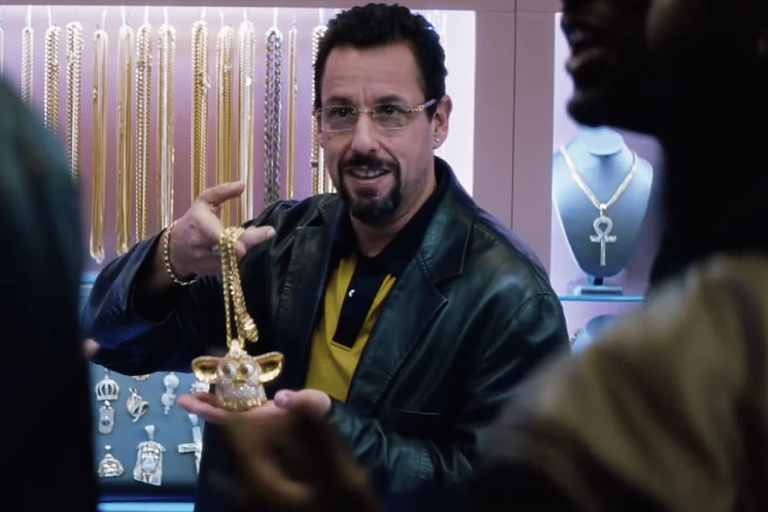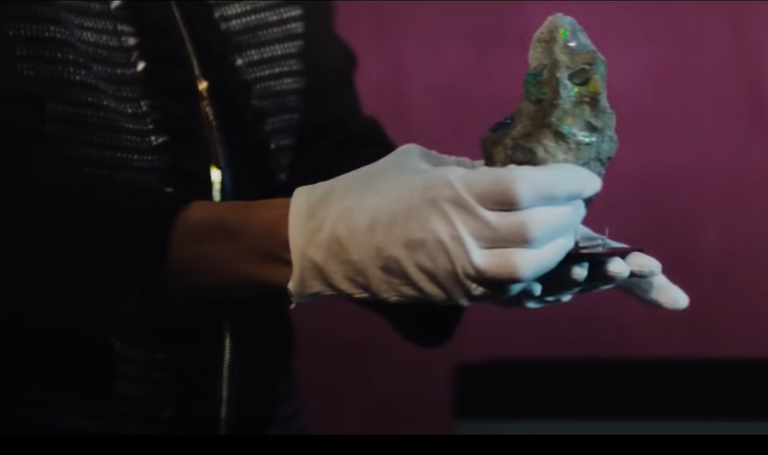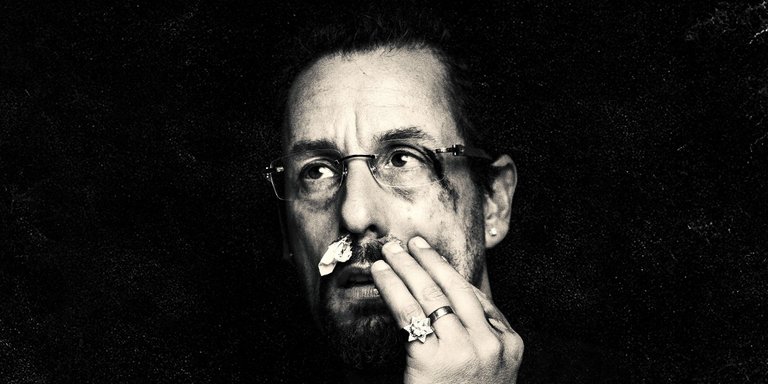Directors: Benny Safdie, Josh Safdie
Writers: Ronald Bronstein, Josh Safdie
Stars: Adam Sandler, Julia Fox, Idina Menzel
In this movie, Adam Sander plays Howard Ratner a scatterbrain Jeweler, which is both schlimazel and schlemiel. For those who don’t know the meaning of these words… Schlimazel is the person who causes constant problems for himself and schlemiel is the person that causes problems for others.

Howard is a gambler with all the signs of his attitude toward it being compulsive. His life is a mess both on business and personal levels. He owes money to many people, including his relatives, one of whom Arno has every intension to beat them out of Howard with the help of his hired muscle men. Howard exists in a feverish paradigm of constant borrowing from one person to pay to another. His personal life is just as messy. He has a wife and three children who live in a beautiful house. Also, he has a mistress for whom he rents an expensive apartment in a skyscraper. One can only imagine how expensive is to run and maintain this life. A viewer has the feeling that this isn’t going to end well for Howard.
That’s where uncut gem comes into the picture. The uncut gem is a nugget dug in Ethiopian mines that Howard obtained, apparently through his connections illegally as it came in the stomach of a fish. It’s a beautiful and very expensive stone that Howard hopes to auction and, thus, pay his debts and got out of the rotten situation he is in.

Source Screenshot
The movie was relatively cheap in production cost (around 18 million) as it employed many regular people instead of paid actors. In particular, one of the supportive characters is a famous basketball star Kevin Garnett, who falls in love with the gem as he feels some inner connection to it and believed that it helps him to score more points in a game.
Whether real Kevin Garnet feels this connection remains to be seen, but that “love to a stone” creates one of the movie threads as Kevin wants to obtain the nugget and is ready to pay for its high price.
The movie seems a little run on in its middle as Howard repeatedly goes through the same types of situations and I could not observe any dynamics inside the character. However, in my view, it all paid off at the end, which is somewhat unexpected in the scheme of a typical Hollywood movie and yet quite expected as it falls well with the overall narrative logic.
Without giving out too much of the plot, in the crescendo moment of the movie, when Howard’s gesheft seems to turn the luck in his favor, there comes the gruesome and sobering ending.
At first, it seems that the point of the story is common moralizing - don’t be wasteful, don’t gamble your luck, work hard, be smart, and so on, but then I remember Howard’s plea to his relative Arno during the Jewish holiday. The plea of peaceful resolution of their money issues and Arno not wanting to listen to him…and I think I was able to connect the dots.
The movie talks specifically about Jewish people and the hatred and persecutions they experience living in diaspora between other nations. It proclaims that the epoxy of civilization and political correctness is very thin, the deep-rooted hatred is still there, and given a chance it splashes out to the surface. And that is the reason why Jewish people must be smart, not wasteful, don’t gamble with their luck, and keep their disagreements among themselves.
And no amount of successful geshefts, to which Howard presents a panegyric in front of Garnett in another pivotal moment of the movie, is going to save them.
